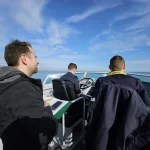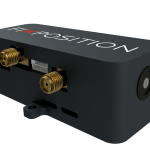Q-CTRL, a developer of quantum infrastructure software, announced successful field trials of a new generation of quantum-assured navigation solutions validated to outperform comparable conventional alternatives in challenging real-world settings.
Q-CTRL has produced a new generation of quantum-assured navigation systems, Ironstone Opal, that delivers GPS-like positioning, is completely passive and undetectable, and cannot be jammed or spoofed. It aims to solve the most pressing navigation challenges in the defense and civilian domains, enabling new missions, streamlining transport operations, and powering autonomous systems.
Q-CTRL conducted real-world ground and airborne trials showing its quantum-assured navigation solution enabled successful GPS-free navigation, outperforming a high-end conventional GPS alternative by up to 50x.
The Q-CTRL quantum-assured navigation system uses quantum sensors to detect tiny, otherwise imperceptible signals arising from Earth’s structure that serve as magnetic “landmarks” for navigation — only quantum sensors provide the sensitivity and stability needed to continuously “see” these landmarks from a moving vehicle.
“We achieved an accuracy in some trials comparable to a sharpshooter hitting a bullseye from 1,000 yards away,” said Q-CTRL CEO and Founder Michael J. Biercuk. “But because our quantum-assured navigation system allows a vehicle to position itself accurately irrespective of how far it’s travelled, by analogy that sharpshooter can hit the same bullseye no matter how far away they move from the target.”
“Unlike quantum supremacy [in quantum computing], the technology is truly innovative and meets a growing market need in aerospace, defense, and autonomous cars,” said Jean-Francois Bobier, Partner & Vice President, Deep Tech, at the Boston Consulting Group.
Q-CTRL provides a new solution from top to bottom, built around the concept of “software ruggedized hardware.” This concept uses proprietary AI-powered quantum control software to shield the delicate quantum sensors against interference encountered in the real world and allows the systems to be miniaturized by trading hardware for software to enable deployment on nearly any vehicle.
“Q-CTRL’s innovative approach to software-ruggedized hardware holds tremendous potential for advancing GPS-denied navigation,” according to Dr. Tom Loftus, Lockheed Martin Senior Fellow and Technical Lead for Quantum Sensing and PNT. “The application of quantum control software to protect sensitive quantum sensors is a game-changer, enabling the development of robust, compact, and deployable solutions that can be seamlessly integrated into a variety of platforms, from unmanned aerial vehicles to next-generation spacecraft.”
“At Q-CTRL, we’re thrilled to be the global pioneer in taking quantum sensing from research to the field, being the first to enable real capabilities that have previously been little more than a dream,” said Biercuk from Q-CTRL. “This is our first major system release and we’re excited that there is much more to come as we introduce new quantum-assured navigation technologies tailored to other commercial and defense platforms.”
Q-CTRL’s quantum magnetic navigation system is small enough to fit on small fixed-wing drones or autonomous cars, and powerful enough to enable navigation in passenger airliners. The company is working with government agencies, including the Australian Department of Defence, the UK Royal Navy, and the US Department of Defense, to deliver new quantum-sensing technologies for defense platforms. In addition, Q-CTRL is working with Airbus on quantum navigation solutions for commercial aviation.






